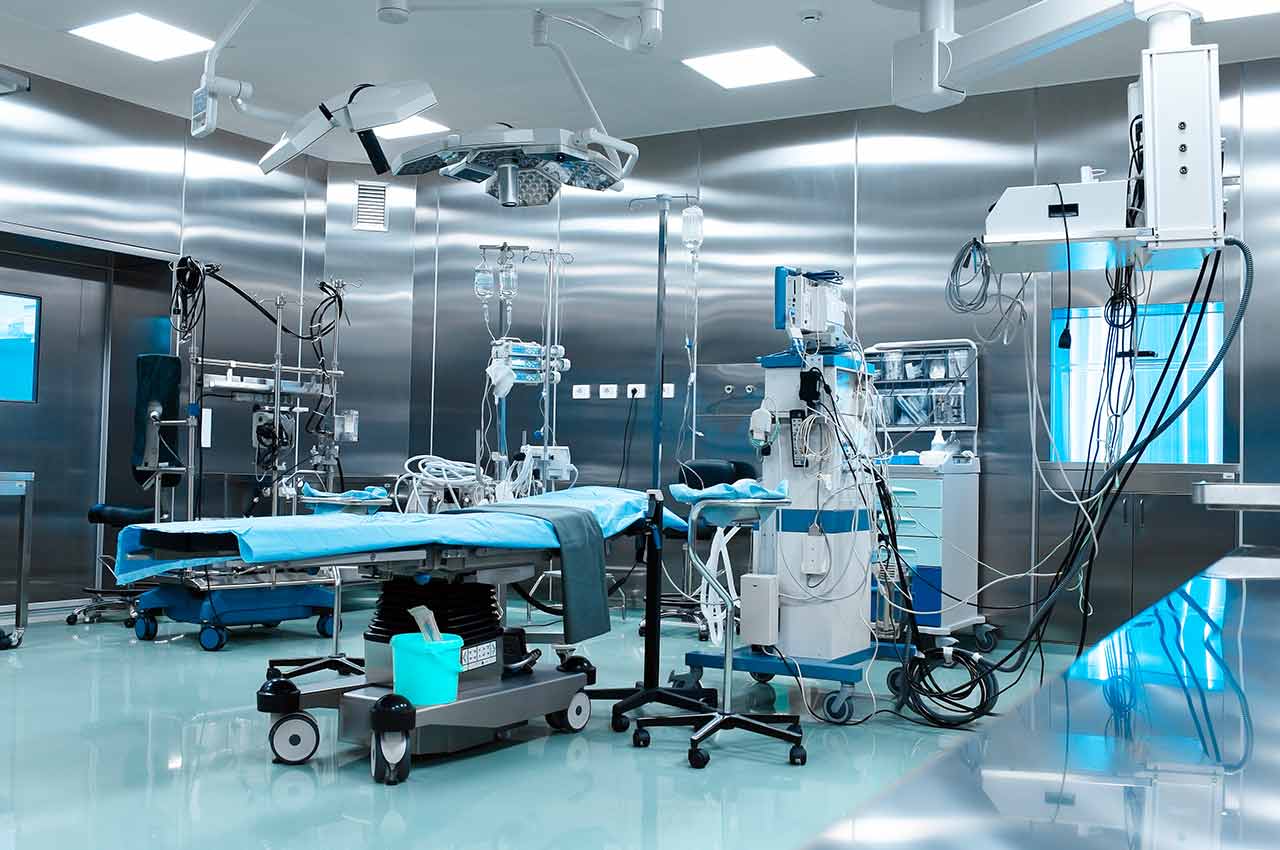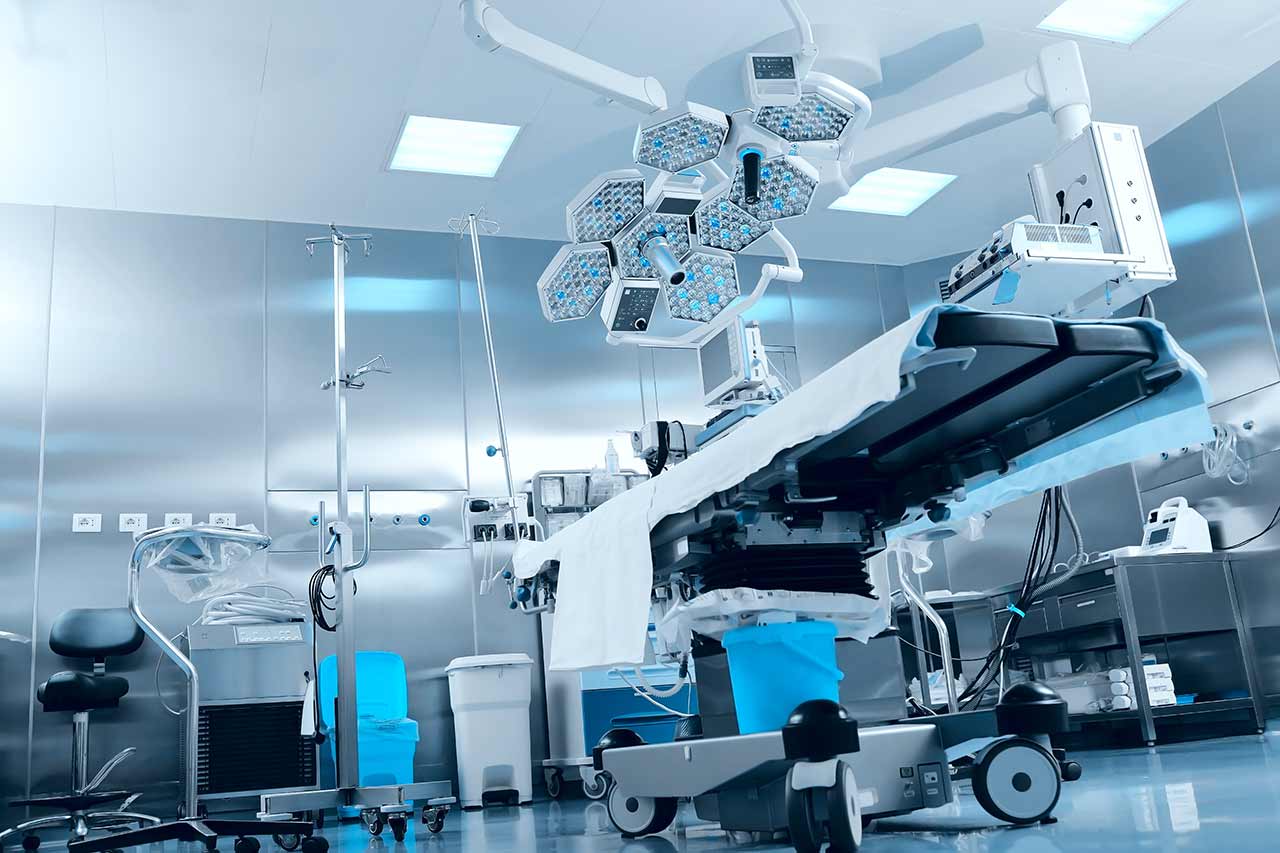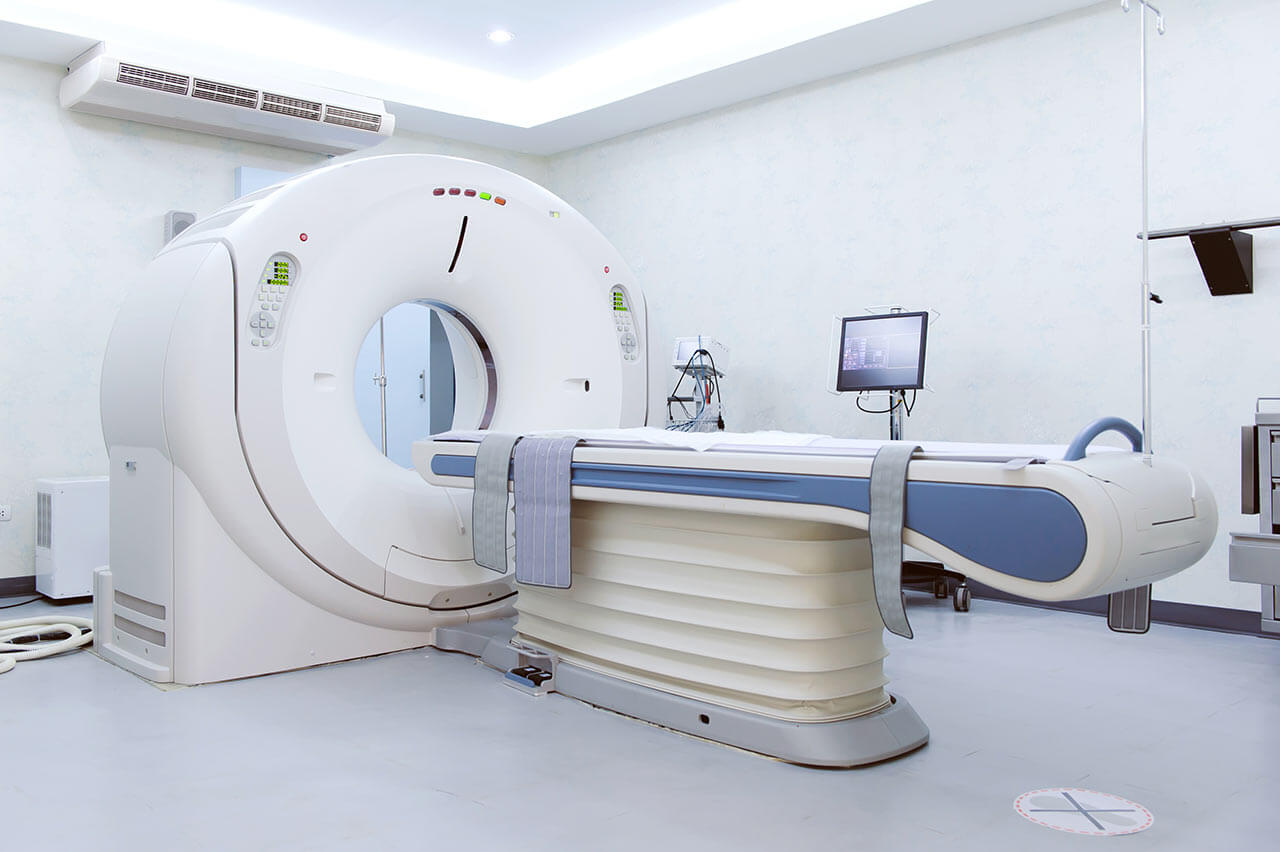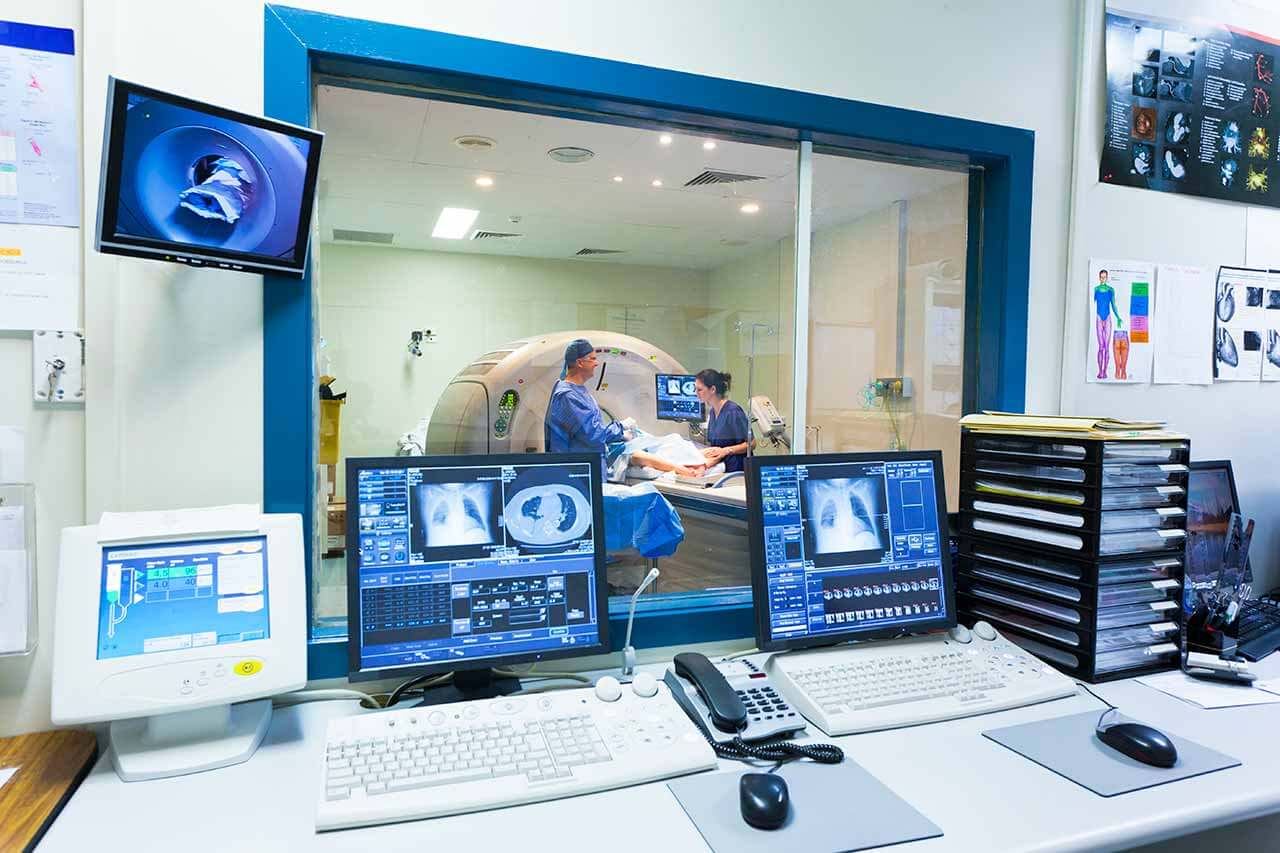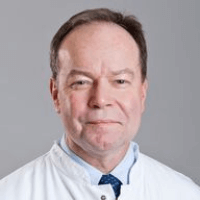
The program includes:
- Initial presentation in the clinic
- clinical history taking
- physical examination
- laboratory tests:
- complete blood count
- general urine analysis
- biochemical analysis of blood
- indicators of inflammation
- indicators blood coagulation
- x-ray/ MRI examination of the neck
- preoperative care
- dorsal fixation or osteosynthesis
- neck fixator
- symptomatic treatment
- physiotherapy
- control examinations
- cost of essential medicines and materials
- nursing services
- full hospital accommodation
- explaination of future recommendations
Required documents
- Medical records
- X-ray examination, MRI/CT scan (if available)
Service
You may also book:
 BookingHealth Price from:
BookingHealth Price from:
About the department
According to the Focus magazine, the Department of Adult and Pediatric Neurosurgery at the University Hospital Frankfurt am Main ranks among the top German medical facilities specializing in the surgical treatment of brain tumors!
The department offers the full range of diagnostics and surgical treatment of diseases of the central and peripheral nervous system. A specially trained team of pediatric neurosurgeons provides treatment for various neurosurgical pathologies in children. During the treatment, the doctors use state-of-the-art equipment, in particular, imaging-guided neuronavigation, functional imaging (fMRI), intraoperative mapping, intraoperative videoangiography, etc. The Chief Physician of the department is Prof. Dr. med. Volker Seifert.
The department’s priorities include vascular neurosurgery, brain tumor surgery, skull base and spinal surgery. In the field of vascular surgery, the department treats cerebrovascular diseases, such as aneurysms, angiomas, cavernomas, including complex clinical forms of pathology. In addition, the department's doctors specialize in recanalization of the cerebral vessels using innovative ELANA device. The department's neurosurgeons also have exceptional competence in the treatment of brain tumors. Tissue sampling for histological examination is carried out using modern computer stereotactic systems.
The primary task of surgeons during the treatment of brain tumor is not only its resection, but also the preservation of all vital functions of the central nervous system. In this regard, they widely use in their clinical practice high-precision microsurgical techniques, intraoperative imaging using MRI and other innovations of neurosurgery. In order to consolidate the results of surgical treatment, the patient can also undergo chemotherapy, radiation therapy and Gamma Knife treatment.
Other priorities of the department's work include the treatment of degenerative and oncological diseases of all spinal segments, interdisciplinary skull base surgery, deep brain stimulation, surgical treatment of patients with hydrocephalus, as well as microsurgical treatment of compression syndromes, tumors and damage to the peripheral nervous system, including the brachial plexus. In close collaboration with the Department of Neurology, there is offered deep brain stimulation to treat movement disorders (Parkinson's disease).
With appropriate indications, preference is always given to progressive sparing treatment techniques – minimally invasive neurosurgery using the most modern imaging-guided computer microsurgical, endoscopic, robotic and stereotactic procedures.
It is worth noting that the department has the status of the International Reference Center for Complex Brain, Spinal Cord and Spinal Diseases. In addition, the department became one of the first German neurosurgical medical facilities certified as the Center for Cerebrovascular Pathologies (certification of the German Society of Neurosurgery).
The service range of the department includes the diagnostics and treatment of the following neurosurgical diseases:
- Aneurysms and angiomas
- Intracerebral hemorrhage and vascular occlusion
- Brain tumors
- Tumors and pathologies of the spinal cord and nerve roots
- Degenerative, inflammatory, oncological and traumatic spinal injuries
- Chronic back pain
- Traumatic brain injuries
- Malformations of the nervous system
- Hydrocephalus
- Neurosurgical diseases in childhood (focus on hydrocephalus, malformations and tumors of the nervous system)
- Other diseases
Surgical treatment is performed using the following modern medical equipment and techniques:
- Intraoperative magnetic resonance imaging
- Microneurosurgical technique
- Robot-assisted surgery (ROSA system)
- Endoscopy
- Neuronavigation
- Intraoperative monitoring
- Intraoperative video-angiography
- Ultrasound removal of affected tissues
- Laser technologies
- Intraoperative X-ray examinations
- Neuromodulation (deep brain stimulation)
- Other techniques
Curriculum vitae
- 1979 - 1985 Work in the Department of Neurosurgery at the Hannover Medical School.
- 1987 Research Internship (6 months) in the Department of Neurosurgery, Northwestern University, Chicago, Illinois, USA.
- 1987 Habilitation.
- 1987 - 1991 Associate Professor of the Department of Neurosurgery at the Hannover Medical School.
- 1991 - 1994 Associate Professor and Deputy Head of the Department of Neurosurgery, University Hospital Essen.
- 1994 - 1998 Professor and Head of the Department of Neurosurgery, University Hospital Leipzig.
- 1998 - 2000 Professor and Head of the Department of Adult and Pediatric Neurosurgery, University Hospital Frankfurt am Main.
- Since 2000 Director of the Centre for Neurology and Neurosurgery (Centre for Clinical Neurosciences) at the University Hospital Frankfurt am Main.
Scientific Achievements
- 1981 Doctorate in Medicine at the Hannover Medical School. Thesis title: "Meningioma and perifocal edema (investigations on the macroscopic and microscopic informative value of computed tomography by means of size and density measurements)".
- 1987 Habilitation at the Hannover Medical School. Thesis title: "Arachidonic acid metabolism after subarachnoid hemorrhage. Experimental and clinical studies on the pathogenesis of cerebral vasospasm".
Visiting Professorship
- University of Pittsburgh, USA, Department of Neurosurgery.
- University of Tianjin, China, Department of Neurosurgery.
- University of Beijing, China, Department of Neurosurgery.
- University of Chișinău, Moldova, Department of Neurosurgery.
- University of West Virginia, Morgantown, USA, Department of Neurosurgery.
- Shinshu University, Matsumoto, Japan, Department of Neurosurgery.
- University of Geneva, Switzerland, Department of Neurosurgery.
- Permanent Guest Professor of the Department of Neurosurgery, University of Beijing, China.
- Honorary Professor of Clinical Neurosurgery, Beijing Tian Tan Hospital of the Capital University of Medical Sciences, China.
Membership in Professional Societies (selected)
- Secretary of the German Academy of Neurosurgery.
- Senior Delegate of the German Society of Neurosurgery in the World Federation of Neurosurgery (WFNS).
- Delegate of the German Society of Neurosurgery in the European Association of Neurosurgical Societies Training Committee.
- Member of the Skull Base Surgery Committee of the World Federation of Neurosurgery (WFNS).
- Member of the Cerebrovascular Committee of the World Federation of Neurosurgery (WFNS).
- Member of the Academia Eurasiana Neurochirurgica.
- Founding Member of the German Society of Skull Base Surgery.
- Founding Member and Board Member of the German Society of Computer- and Robot-Assisted Surgery.
- Member of the Interdisciplinary Research Committee of the German Ministry of Health of the German Federal Government.
Publications
- More than 400 publications as first, co-author and senior author in scientific journals.
Photo of the doctor: (c) Universitätsklinikum Frankfurt
About hospital
According to the reputable Focus magazine, the University Hospital Frankfurt am Main ranks among the top German medical facilities!
The hospital was founded in 1914 and today is a well-known German medical facility, which combines rich traditions and scientific innovations. A medical team of more than 6,500 employees cares about the health of patients around the clock, ensuring them with the highest standards of medical care and best possible safety.
The hospital has 32 specialized departments and more than 20 research institutes, which have all the necessary resources for the provision of the most effective care for any patient. The hospital has 1,488 beds for inpatient medical care. The medical facility diagnoses and treats more than 51,000 inpatients and about 44,800 outpatients every year. Due to the demonstration of outstanding treatment results, the number of patients seeking medical care here increases significantly annually.
The hospital presents all areas of modern medicine, whereas its special competence lies in neuroscience, oncology, cardiovascular medicine, cardiac surgery and other fields. Many treatment methods available here are unique not only in Europe, but also internationally.
Photo: (c) depositphotos
Accommodation in hospital
Patients rooms
The patients of the University Hospital Frankfurt am Main live in comfortable rooms made in modern design and meeting the highest standards of European medicine. Each room is equipped with an ensuite bathroom with a toilet and a shower. The standard room includes a comfortable, automatically adjustable bed, a bedside table, a wardrobe, a table and chairs for receiving visitors and a TV. If desired, patients can use Wi-Fi. The patients can also stay in the enhanced-comfort rooms.
Meals and Menus
The patient and his accompanying person have a daily choice of three menus. If for any reason you do not eat all the food, you will be offered an individual menu. Please inform the medical staff about your dietary preferences prior to the treatment.
Further details
Standard rooms include:
Religion
Religious services are available upon request.
Accompanying person
During the inpatient program, an accompanying person may stay with you in a patient room or in a hotel of your choice.
Hotel
During the outpatient program, you may stay in a hotel of your choice. Managers will help you choose the most suitable options.
